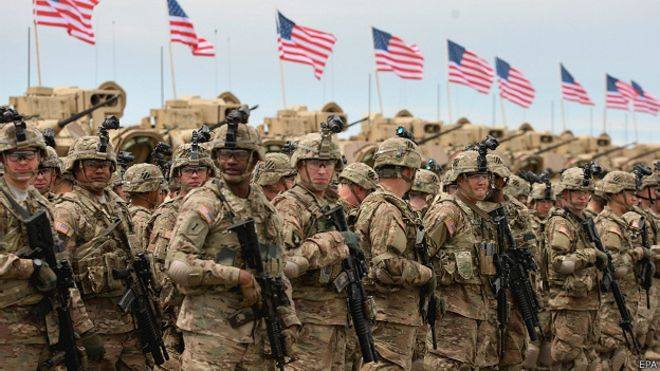The 116th Congress is scheduled to be sworn in and assume its duties early next year. For the first time ever, it will be comprised of a record number of veterans of the Afghanistan and Iraq Wars. More specifically, eight Democrats and 19 Republicans, for a total of 27, will be legislating in the House of Representatives. It might not look like a large enough number, considering that there are 435 seats in the House. But it is a significant increased from the previous Congress. Republicans increased their veteran numbers by 138 percent (currently, there are just eight veterans), and Democrats by 38 percent (currently, there are just five veterans).
It is important to note that the above numbers refer to veterans of the two most recent conflicts, and not to the overall number. In total, 173 veterans ran for office during the 2018 Midterm Elections that took place in early November. Veterans make for appealing candidates because of their service and practical experience on how political decisions affect warfighters.
Delving into the details, most of the elected veterans are former or current reserve mid-level officers; 25 out of the 29, or 89 percent. The majority are either Captains/Lieutenants or Majors/Lieutenant Commanders; there are just three General Officers. The special operations community is represented by a Navy SEAL and Special Forces soldier. Dan Crenshaw’s candidacy raised quite a ruckus in the days before the election when he was ridiculed by the popular comedy show Saturday Night Live (SNL) over his eye-patch, which he wears due to a wound caused by an improvised explosive device (IED). To its credit, SNL retracted and apologised for its conduct.
Could they bridge the civil-military division? Given their limited numbers, it will be tough to have an influence in the shaping of the two main political parties’ strategies. They will, most probably, be assigned to committees were their knowledge and expertise on military affairs would have the greatest possible impact. Among other committees, they could be serving in the United States House Appropriations Subcommittees on Defence, Homeland Security, Military Personnel, Strategic Forces, Readiness, Oversight and Investigations, Military Construction, Veterans Affairs, and Related Agencies, State, Foreign Operations, and Related Programs, and Emerging Threats and Capabilities.
Their shared military experience, furthermore, could serve to foster a better working relationship between the two parties, especially at this time of extreme polarisation. Although this might sound too ideal for the realpolitik machinations that happen in Washington, one should never abandon hope… even in politics.
Already have an account? Sign In
Two ways to continue to read this article.
Subscribe
$1.99
every 4 weeks
- Unlimited access to all articles
- Support independent journalism
- Ad-free reading experience
Subscribe Now
Recurring Monthly. Cancel Anytime.
The 116th Congress is scheduled to be sworn in and assume its duties early next year. For the first time ever, it will be comprised of a record number of veterans of the Afghanistan and Iraq Wars. More specifically, eight Democrats and 19 Republicans, for a total of 27, will be legislating in the House of Representatives. It might not look like a large enough number, considering that there are 435 seats in the House. But it is a significant increased from the previous Congress. Republicans increased their veteran numbers by 138 percent (currently, there are just eight veterans), and Democrats by 38 percent (currently, there are just five veterans).
It is important to note that the above numbers refer to veterans of the two most recent conflicts, and not to the overall number. In total, 173 veterans ran for office during the 2018 Midterm Elections that took place in early November. Veterans make for appealing candidates because of their service and practical experience on how political decisions affect warfighters.
Delving into the details, most of the elected veterans are former or current reserve mid-level officers; 25 out of the 29, or 89 percent. The majority are either Captains/Lieutenants or Majors/Lieutenant Commanders; there are just three General Officers. The special operations community is represented by a Navy SEAL and Special Forces soldier. Dan Crenshaw’s candidacy raised quite a ruckus in the days before the election when he was ridiculed by the popular comedy show Saturday Night Live (SNL) over his eye-patch, which he wears due to a wound caused by an improvised explosive device (IED). To its credit, SNL retracted and apologised for its conduct.
Could they bridge the civil-military division? Given their limited numbers, it will be tough to have an influence in the shaping of the two main political parties’ strategies. They will, most probably, be assigned to committees were their knowledge and expertise on military affairs would have the greatest possible impact. Among other committees, they could be serving in the United States House Appropriations Subcommittees on Defence, Homeland Security, Military Personnel, Strategic Forces, Readiness, Oversight and Investigations, Military Construction, Veterans Affairs, and Related Agencies, State, Foreign Operations, and Related Programs, and Emerging Threats and Capabilities.
Their shared military experience, furthermore, could serve to foster a better working relationship between the two parties, especially at this time of extreme polarisation. Although this might sound too ideal for the realpolitik machinations that happen in Washington, one should never abandon hope… even in politics.










COMMENTS